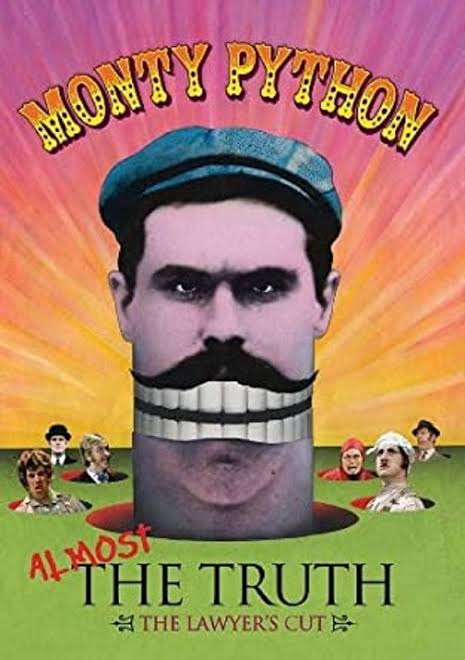Shirkers Christian Review

Ever had something ripped from your hands—something you didn’t just want to create but had to, a piece of your soul you slaved over, only to see it slip into someone else’s grasp and vanish? That’s the nightmare Shirkers drops you into. It’s a documentary by Sandi Tan, a director who lost her own film, her dream, to someone who smiled in her face, whispered encouragement, and then tore it all away. We’re not talking about some lost footage, though. This is about a theft that goes way deeper. The kind that scars and stains and makes you question whether what you believed in was ever real in the first place. And the film isn’t just Tan’s search for that lost footage—it’s a journey into the mind of a ghost who stole it, and a reflection on how to pick up the shattered pieces of a dream.
A Story Stuck in the ’90s, Resurrected in the 2000s
Back in 1992, Tan and her friends in Singapore—Jasmine Ng and Sophie Siddique—were trying to create something completely out of their grasp, a movie that was part avant-garde, part rebellion. A teenage fantasy made real, despite the tight constraints of a conservative country that wasn’t exactly a haven for art-house cinema. It was all set up: Shirkers was meant to be a surreal road movie led by Tan herself as a punkish, wandering protagonist. But then there’s Georges Cardona—the phantom at the heart of it all, the supposed mentor with the weirdly cool presence who swooped in like a dark angel promising to make their wild dreams happen. He wasn’t just there to help. He took control, influenced every decision, and then, poof, vanished into thin air with every reel they’d shot. Imagine being 19 and seeing that happen. How does someone even process that?
Chasing a Ghost: The Enigmatic Cardona
You see, this isn’t just a “missing film” story. It’s about the man who stole it. Cardona. The name itself feels made-up, doesn’t it? And he almost was made-up—a chimera in the guise of a filmmaking guide. He slid into their lives like a riddle: a man who seemed to exist more in whispers and implications than in concrete reality. Who was he? Even after watching Shirkers, you’re left unsure. The people Tan interviews remember him differently—some recall a master manipulator, others just a sad, lonely figure obsessed with others’ dreams. He was everything and nothing, like some black hole that swallows up your ambition and spits out disappointment. This is where the film gets murky in a way that most documentaries wouldn’t dare. It doesn’t resolve his character, doesn’t wrap it up neatly. Cardona’s steps through their lives remain just out of focus, like trying to recall a dream you know was vivid but can’t quite describe. And maybe that’s the point.
The Death of Trust: The Spiritual Weight of Betrayal
From a Christian lens, Shirkers is something like a parable of lost innocence. Trust, the Bible tells us, is a sacred thing, a seed that needs careful tending, rooted in love and patience. “Do not put your trust in princes,” says Psalm 146:3, “in human beings, who cannot save.” Cardona’s betrayal is a stark reminder of this—he comes in like a mentor, a savior of sorts, holding the promise of delivering them into the world of true artists. But what he gives with one hand, he takes with the other. He takes their film, yes, but more than that, he takes their belief in others. It’s a kind of theft that feels almost spiritual, like robbing someone of the ability to see good in the world. It’s chilling in its subtlety. Even now, you can sense Tan’s guardedness, her hesitation. That’s the real price of this theft—how it transforms a person’s heart.
Filmmaking as Reclamation: The Long Road Back
But Shirkers isn’t a dirge for what’s lost. It’s more like a hymn to resurrection, albeit sung in a minor key. Because, as the saying goes, “What is dead may never die, but rises again, harder and stronger.” Tan doesn’t just wallow in the loss. She turns around, picks up a camera again, and starts recording her story of what was taken. She dives into old memories, reconnects with friends, hunts down Cardona’s elusive trail. She rebuilds, piece by painful piece, using her pain as fuel for something new. The act of creating this documentary becomes the very thing Cardona thought he’d taken forever. She finds her voice, distinct and sharp, rising out of the mess he left behind.
That juxtaposition of old and new footage, the dreamy, slightly decayed visuals of 16mm against the digital precision of now—it’s a brilliant metaphor for how memory and reality rarely sync up. The old film looks almost mythical, like something conjured up from Tan’s deepest desires. The new shots? Unforgivingly real. But they meet, and when they do, it’s electric. It’s the spark of creation that refuses to be snuffed out, no matter how many times it’s betrayed.
Not Just About a Movie: A Testament to Resilience
Ultimately, Shirkers is more than a “film about a film.” It’s about confronting the long shadows cast by our pasts. It’s about daring to face down the specters of what we lost and saying, “You don’t get to define me.” For Tan, reclaiming Shirkers is an act of faith. Faith in herself, in her craft, in the idea that something beautiful can be born from pain. She doesn’t get her teenage years back, doesn’t get to undo what Cardona did, but she does something just as powerful: she wrestles the narrative back from his grasp. That’s a form of healing, even if it’s messy and incomplete.
Closure Without Resolution: Embracing the Mystery
What’s so haunting about Shirkers is how it ends. Tan never quite solves the riddle of Cardona. The documentary doesn’t deliver that neat, satisfying conclusion where the villain is exposed and the hero rides off victorious. No, Cardona remains a question mark, a wound that doesn’t fully heal. But maybe that’s how it has to be. Not every story can be tied up with a bow, and not every betrayal has a clear motive. Life is messier than that. Some people do bad things for reasons that don’t make sense, and some damage can’t be undone.
From a Christian perspective, this can be frustrating. We like our resolutions, our justice, our redemption arcs. But Shirkers forces us to grapple with the reality that sometimes, justice isn’t served. Sometimes, the wicked aren’t punished in this life. What do you do, then? You create anyway. You reclaim what you can. You tell your story and trust that God will sort out the rest.
Final Take: A Glorious, Complicated Work of Art
Shirkers isn’t a film you just watch; it’s a film you feel. It’s unsettling, beautiful, infuriating, and triumphant, all at once. Tan’s voice, at once detached and deeply personal, pulls you into her world and makes you live her loss and redemption alongside her. It’s a work that lingers, poking at you long after the credits roll, challenging you to think about your own dreams—about what you’ve lost and what you still have the power to reclaim.
Rating: 8/10. It’s not perfect. Some threads feel unresolved, some cuts a little too jagged. But maybe that’s how it’s supposed to be. Because the story isn’t really over. Not yet.





